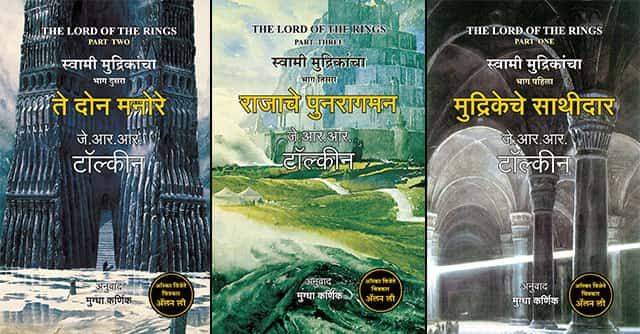Following the interest generated by the Tolkien and Diversity panel at Oxonmoot 2020, (hosted by Sultana Raza), another panel on Global Tolkien was proposed and accepted by the Tolkien Society for Oxonmoot 2021. The idea for this panel was formed because of a troubling trend among some SFF and Tolkien enthusiasts against diversity in fandoms and interpretations of SFF writers. Luckily, the Tolkien Society doesn’t seem to ascribe to this view, and has been encouraging further dialogue on this topic.
The panelists included Sultana Raza (also the Moderator), Ali Ghaderi (Iran), María Fernanda Chávez Guiñez (Chile), and Gözde Ersoy (Turkey). Gözde Ersoy (assistant-professor of English Literature at Muğla Sıtkı Koçman University, Turkey) also briefly presented a video of an online event she had organized with school children in Turkey, on the Tolkien Reading Day, where they’d read an excerpt from The Hobbit in Turkish.
The following roundtable was written after Oxonmoot was over, and is an approximation of some of the points discussed during the Global Tolkien panel, which was accompanied by comments in the chat from the lively audience. A hybrid event, the Global Tolkien panel took place via Zoom (with 300+ viewers), while the organizers and a few participants logged in from Oxford where they were attending Oxonmoot in person. While there was quite a bit of interaction amongst the panellists, it’s not possible to re-create it in this written format, as the texts were sent in by email. The following roundtable contains spoilers for all of Tolkien’s stories mentioned below. Disclaimer: The opinions presented in this roundtable are those of the speakers, and not necessarily of the Tolkien Society.
The abstract of Global Tolkien was sent to the panellists beforehand, in form of broad but poignant questions:
Continue reading “Global Tolkien – A Roundtable”Why does Tolkien’s fiction have a global appeal? Why are people from all continents drawn to Tolkien’s stories? What does that tell us about common human values? Only works of depth and substance can garner such a massive following all over the world. Conversely, have the 6 Peter Jackson films, and various games drawn in fans who’re more interested in the action/adventure or violence, and war aspects of the films and games than in the core values embedded in the stories? Should we encourage diverse readings of Tolkien from different geographical locations? Can this coming together of readers from different countries foster an international fellowship, as outlined in his books? Or conversely, should his fans be confined to people of just one race or ethnicity? If the interpretations, readings, or ideas of POC readers are not acceptable by some fans, then should these POC readers be allowed to consume these books/films/games? Should POC fans be limited to being consumers, but not commentators or scholars of Tolkien? Is it even possible to limit POC fans from engaging with, and commenting upon Tolkien’s works? Due to the recent wave of cancel culture, to what extent can we re-read or re-contextualize Tolkien’s works to fit in with our fluctuating world view?


